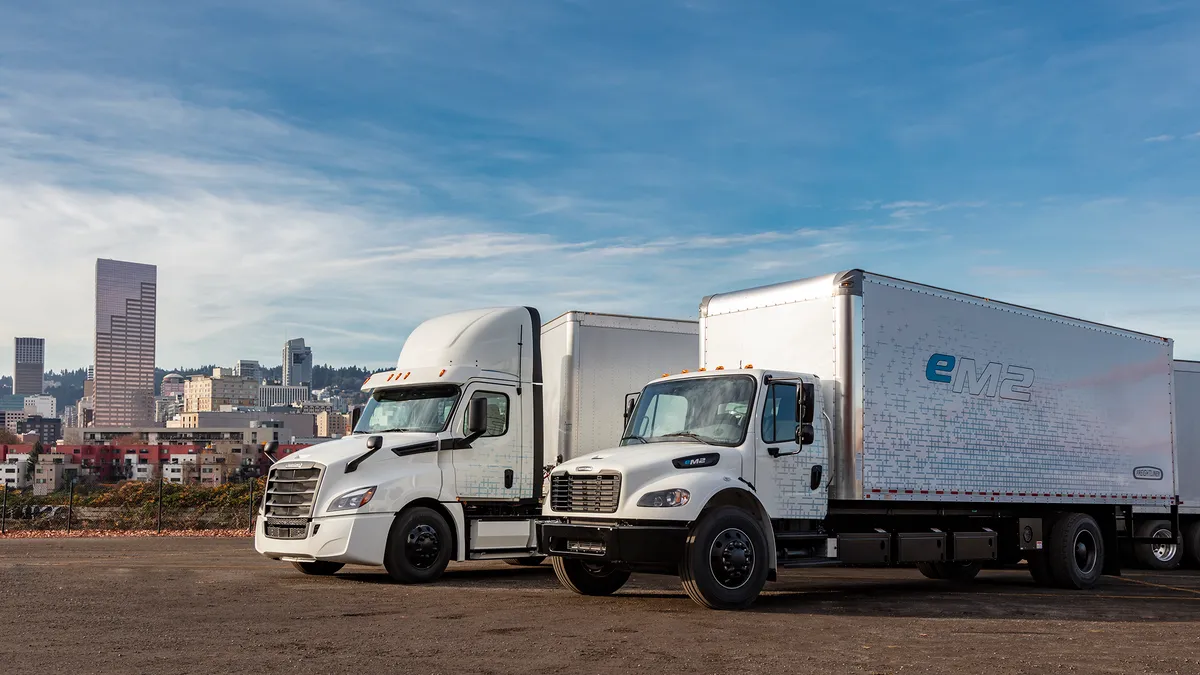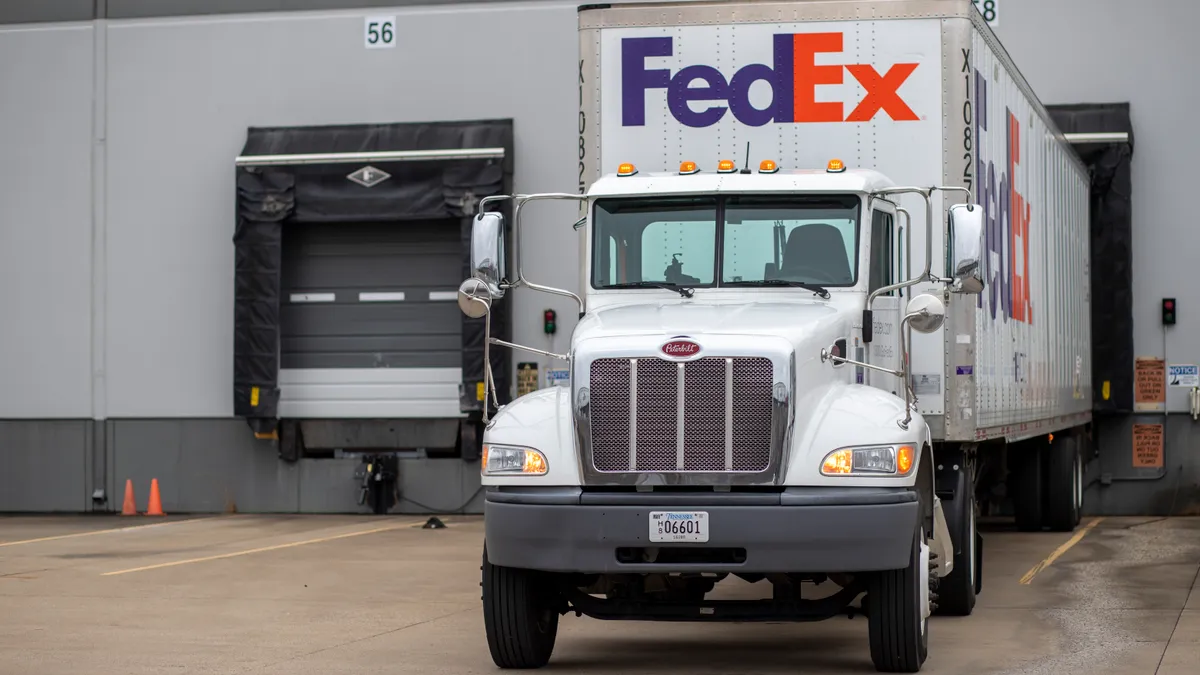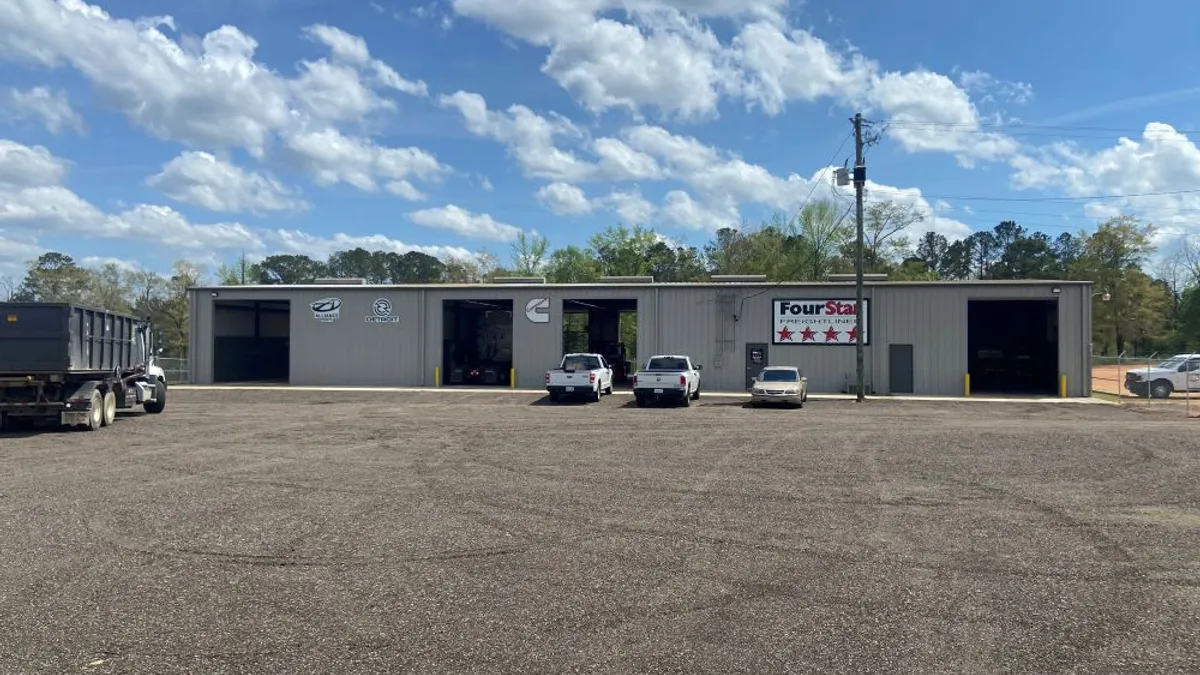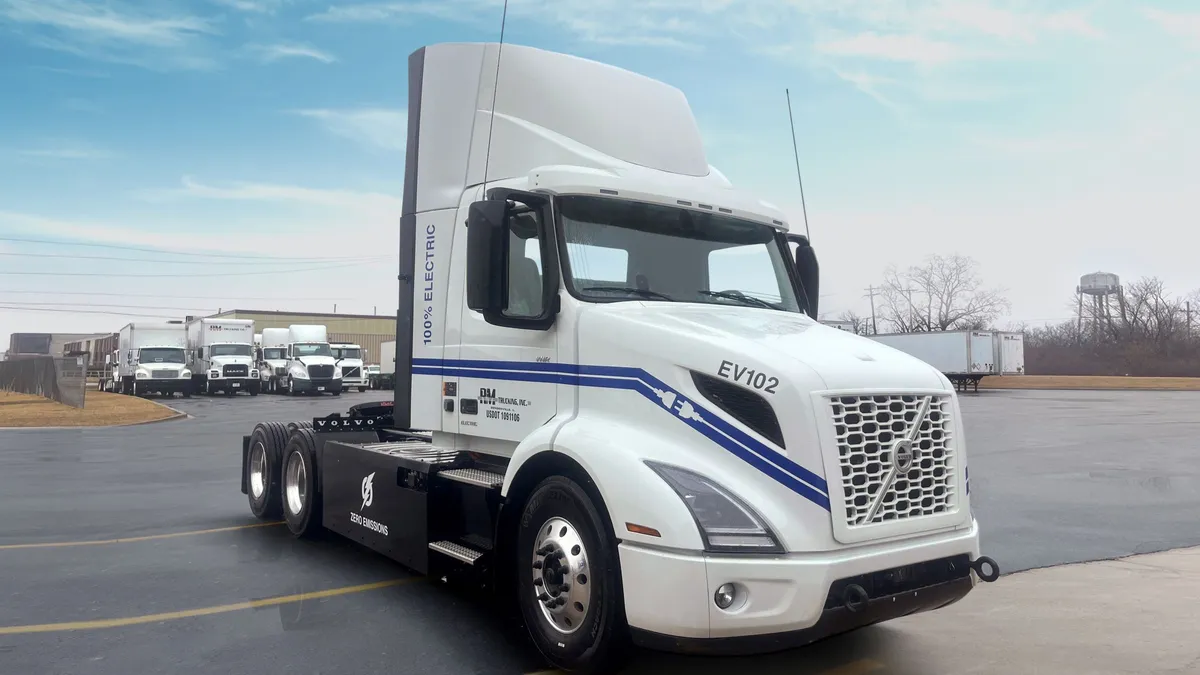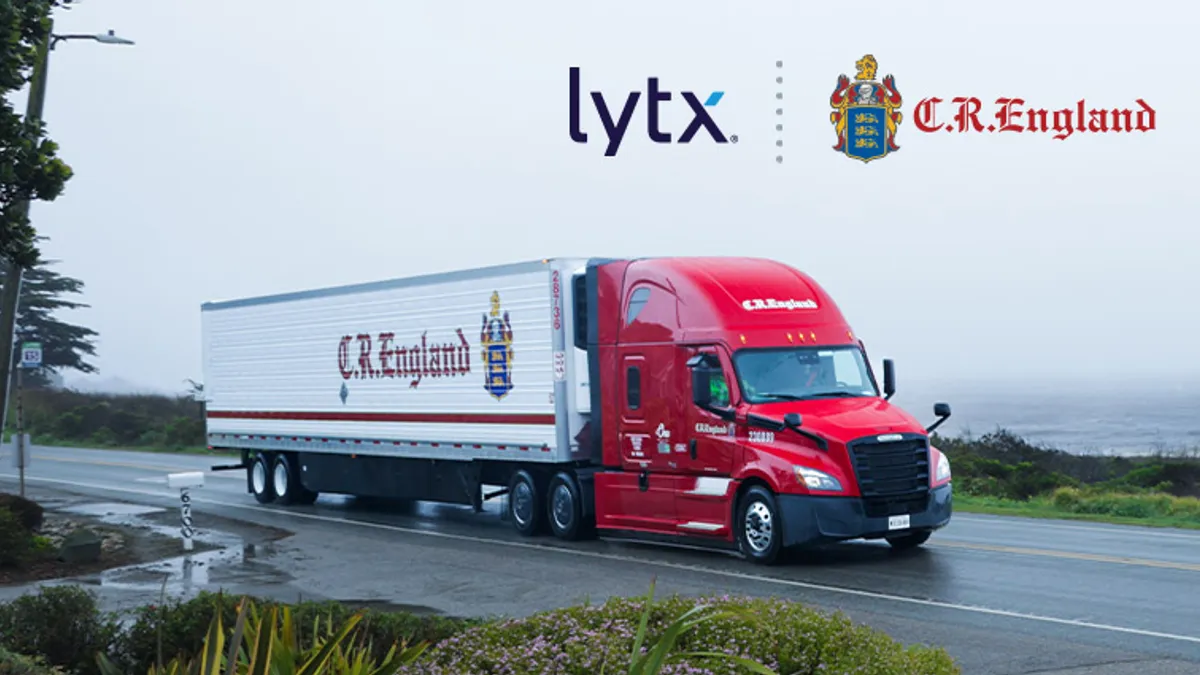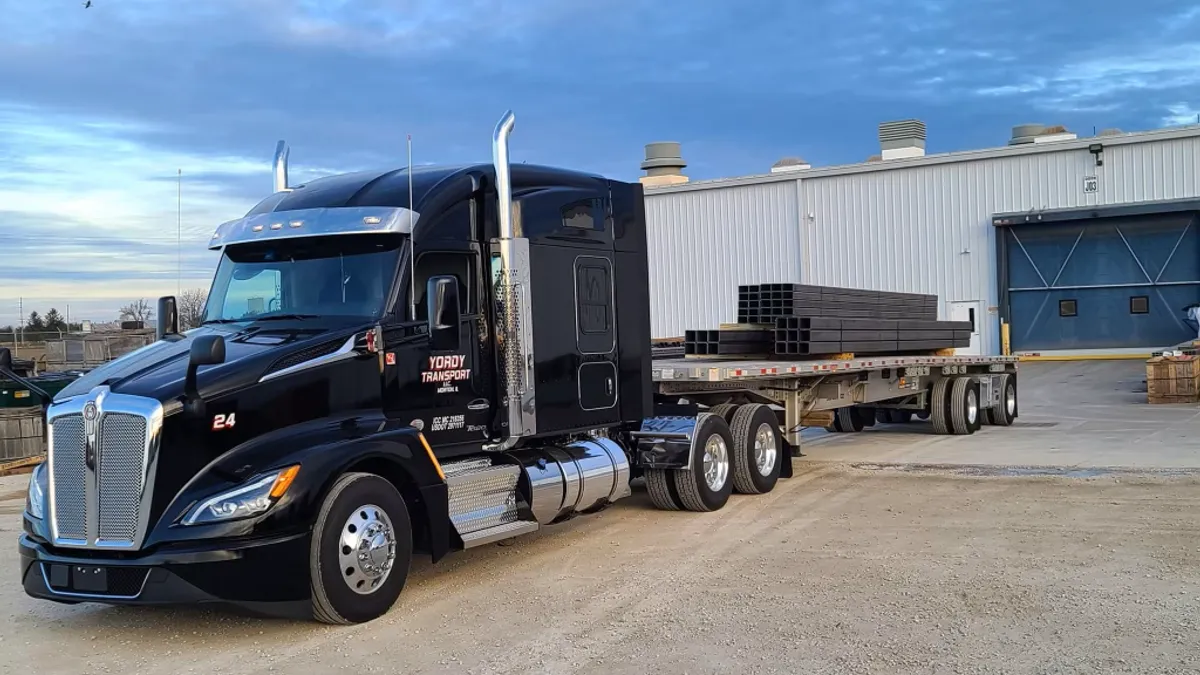Trucking's "green" movement is on the horizon. Fleets are conducting pilot tests of electric trucks in various regions of the U.S. Daimler Trucks North America predicts its big rigs, the Freightliner eCascadia and the eM2, will be ready to sell some time in 2022.
But there's a great deal of work to be done between now and then — and part of it is company culture.
The C-suite might be driving the idea of investing in electric trucks to support carbon reduction goals and sustainability efforts, said Mike Tunnell, director of environmental affairs and research for the American Trucking Associations.
In that instance, they won't need any swaying to consider alternative fuel commercial vehicles.
"Or the idea may be driven from lower in the organization as a way to save costs, but we need a better idea than we have now of how the expenses associated with traditionally fueled vehicles compare to those of electric vehicles," Tunnell said.
Making the case to a perhaps skeptical C-suite involves a closer look at what a zero-emissions fleet requires, what's the return on investment, and other pros and cons to bringing electric trucks into a fleet.
Assessing ROI: Is green tech too green?
Executives need to consider several factors before investing in electric trucks, many of which are a bit of an unknown due to the lack of a mature market.
Total cost of the vehicle is a consideration, but so are the necessary up-front investments, said Alex Voets, manager of eMobility product and sales strategy at Daimler Trucks North America, in an email. These trucks need chargers and the infrastructure required for them.
Tunnell agreed that infrastructure and charging are big pieces of the equation. Fleets are left with questions around how long it takes to charge different vehicles, and what are the financial implications and avenues to reduce costs.
"With miles per gallon, you're told what to expect, but you may not achieve that," said Tunnell. "It's the same for EVs now with their ranges."
"The total cost in play now is so out of bounds it doesn't make any sense in most cases."

Paul Rosa
Senior vice president of procurement and fleet planning at Penske Truck Leasing
Paul Rosa, senior vice president of procurement and fleet planning at Penske Truck Leasing, said it's too early in the game to have the ROI conversation. The technology is too green and not ripe yet, he said.
"The cost per kilowatt for a battery needs to decrease," said Rosa. "The total cost in play now is so out of bounds it doesn't make any sense in most cases. Prices need to come down and fleets need to be eligible for grants to help with the costs."
High costs are one of the barriers to widespread adoption of electric trucks in freight transport.
OEMs, too, face high costs in manufacturing the batteries needed for heavy-duty electric trucks. Tesla raised its expectations for capital spending by $2 billion, in part because of the need to expand battery cell factories. The cells continue to be an obstacle to Tesla scaling production of its Semi truck.
Driver perception, public perception
Most consumers find the concept of zero-emissions attractive, said Tunnell, but it's likely they won't know whether trucks they encounter are battery-powered or not.
Rosa promises everyone will recognize his company's trucks as electric because they are conspicuously marked "Penske Electric Vehicle" in bold letters.
Because of those markings, Rosa relates this anecdote. One driver had an experience with positive public opinion. While stopped at a traffic signal, in a Penske electric vehicle, a group of people shouted to him, "Is that really electric?" When he said, "Yes," they asked if he'd pull over so they could snap a photo of themselves in front of his truck.
"We are seeing significant interest even if not everyone is ready to jump in yet."

Alex Voets
Manager of eMobility product and sales strategy at Daimler Trucks North America
"The driver was so proud at that moment," said Rosa.
Other Penske drivers have expressed advantages of the EVs including no diesel smell, the ability to hear nature's sounds, great handling and a good pickup speed, he said.
The benefit of happier drivers could be one way to sell the C-suite on electric trucks, particularly with turnover spiking in recent months.
Another sell is corporate responsibility and perception among the public and stakeholders.
EVs are generally seen as a clean and sustainable mode of transportation, said Voets.
"We are seeing significant interest even if not everyone is ready to jump in yet," Voets said. "Similar to the passenger car industry, we expect that adoption will start slow, but then pick up as acceptance increases."
Planning for the electric future
No emissions, no fuel costs and no noise are usually the three most-talked about benefits, said Tunnell. Although EVs will be for sale soon, these will be in limited quantities because mass production is a few years off.
Penske has electric trucks on the road in every class from 4-8, some in southern California and some in the central United States, said Rosa. The company runs them in different climates, with various types of loads.
"We've been working with EVs since 2017 and continue to gain momentum, though our teams slowed down because of the pandemic, but we ramped up again in July," said Rosa.
"You can't just plug in a truck and go down the road."

Paul Rosa
Senior vice president of procurement and fleet planning at Penske Truck Leasing
For electric truck adoption, infrastructure must come first, and with it, the understanding of that infrastructure, he said.
"You can't just plug in a truck and go down the road," said Rosa.
Navistar and In-Charge Energy are addressing the learning curve with electric vehicles by offering consulting services. They'll teach truck buyers how to operate and maintain the EVs.
After infrastructure, fleets will need the right permits, devices and agreements with utility companies. Many systems will have to change — all part of the consideration for executives on if and when to adopt electric trucks.
Planning is paramount because EVs are coming to fleets sooner than they think, Rosa said.


